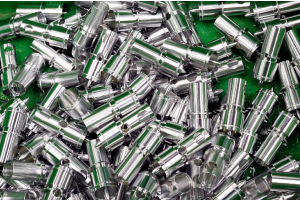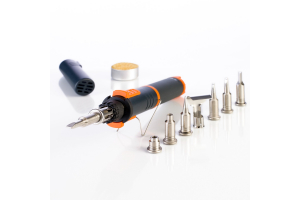We use cookies to make your experience better. To comply with the new e-Privacy directive, we need to ask for your consent to set the cookies. Learn more.
How Do Butane Soldering Irons Work?

How Do Butane Soldering Irons Work?
Butane soldering irons use a butane gas fuel source to generate heat for soldering. Here is how they work:
The butane gas is stored in a refillable tank within the soldering iron. Butane is a hydrocarbon gas that is commonly used in portable heating devices because it is easy to store, transport, and ignite.
The ignition system on a Portasol butane soldering iron involves a piezoelectric system, which generates an electric spark when it is struck. This spark ignites the butane gas flowing from the tank, creating a flame at the tip of the soldering iron. The flame heats up a catalyst which in turn heats the tip, which then is used to heat the metal surfaces to be soldered and the solder itself, causing it to melt and flow onto the metal. The user can then control the temperature of the soldering iron by adjusting the gas flow and flame size.
Portasol soldering irons include safety features such as a locking mechanism to prevent accidental ignition, a safety cap to protect the tip when not in use, and a flame adjuster to control the size of the flame.
Portasol butane soldering irons are portable and convenient because they do not require an electrical outlet, making them useful in situations where electricity is not available or where a corded soldering iron would be impractical. They are also versatile, as they can be used for a wide range of soldering applications, from electronics to jewellery making. They are also lightweight and easy to carry around, making them ideal for fieldwork.
Portasol butane soldering irons come with interchangeable tips that can be easily swapped out depending on the application. The tips can vary in size and shape, and some may be designed for specific tasks, such as soldering small electronic components or larger plumbing joints.
Butane-powered soldering irons typically have a higher heat output than battery or electric irons, which means they can heat up faster and get the job done more quickly.
Butane-powered soldering irons can operate for much longer periods than battery-powered irons before needing a refill. This makes them ideal for extended projects.
Durability: Butane-powered soldering irons are often built to be more robust than battery or electric irons, which makes them more suitable for use in tough environments.






